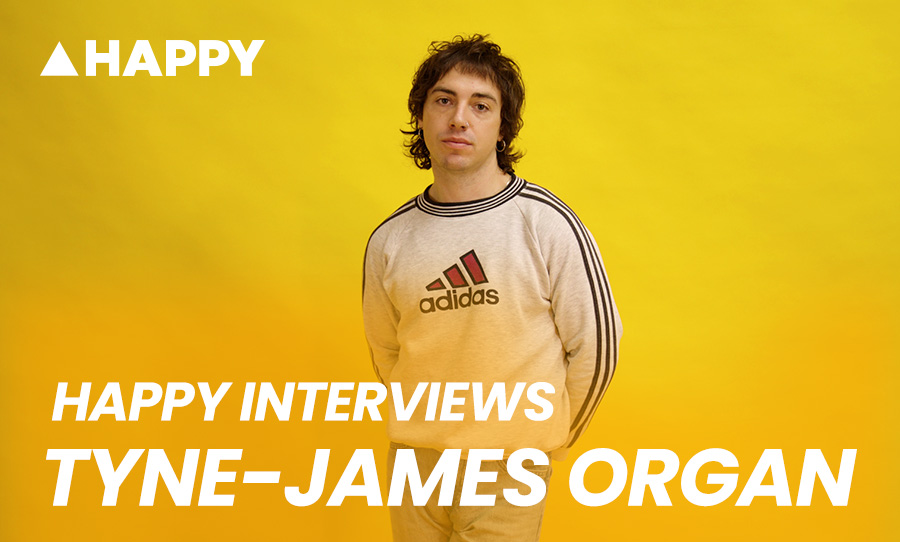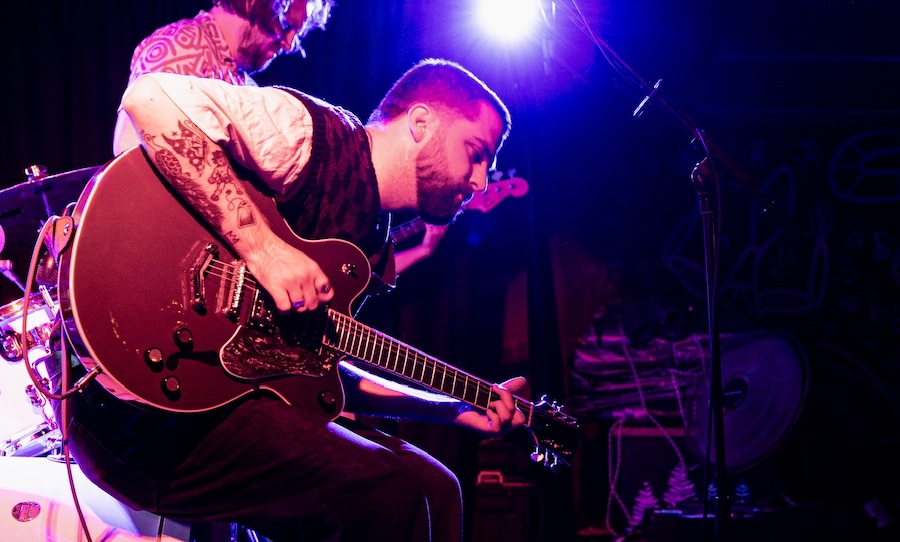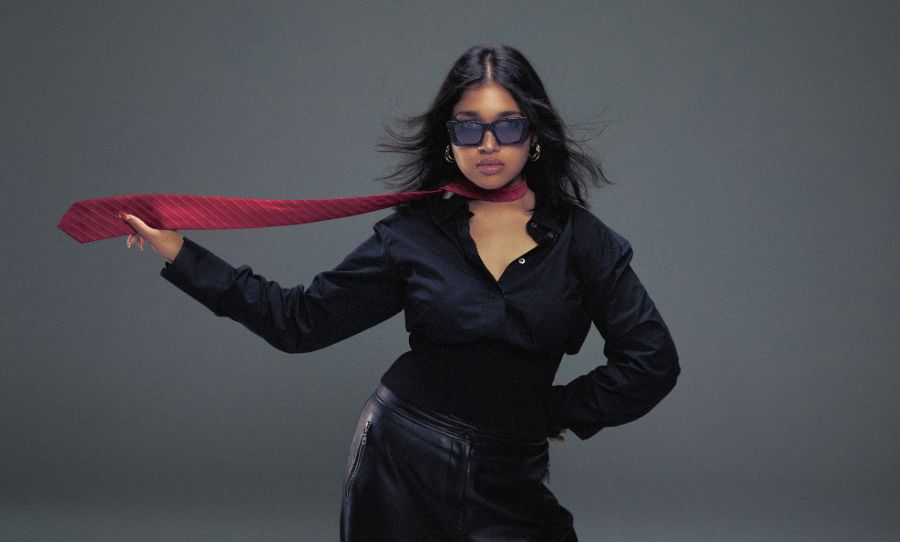The Pōneke artist gets devastatingly honest about mental health, creative survival & her stunning new EP
Julia Belle unveils her deeply evocative debut EP Dreamland today—an intimate journey through mental turmoil, escapism, and the fragile balance between reality and solace.
Following her haunting single Let Go, the project weaves raw lyricism and lush, folk-inspired soundscapes, channeling the emotional depth of Phoebe Bridgers and Adrienne Lenker.

Produced by Toby Lloyd (Tiny Triumph Recordings), Dreamland mirrors Julia’s struggles with OCD, oscillating between stark confession and dreamlike reverie.
Tracks like Homesick—with its aching line, “It’s been raining in my head, but I take cover in dreamland”—capture the EP’s heart: a refuge from the storm.
Let Go remains a standout, its melancholic release echoing the EP’s themes of control and surrender.
Paired with Francesca Sewell’s striking visuals in the music video, it’s a gripping introduction to Julia’s world.
Stream Dreamland now and dive into Julia Belle’s deeply spellbinding and intimate interview below.
HAPPY: ‘Let Go’ explores themes of mental struggle and release.
Can you walk us through the personal experiences that inspired this song?
JULIA BELLE: Let Go came from a breaking point.
During that time, I was stuck in a severe OCD loop, so intense I was agoraphobic and sometimes confined to a single corner of my room.
In therapy, I made an exposure list, a scale of everyday things I wished I could do. Number 10 was something so simple, something most people do without thinking.
It’s such an interesting experience in hindsight, to be in a room full of people when it’s taken you 10 out of 10 effort just to be there.
You feel like you’re going to collapse or die from panic, and no one around you even notices.
They’re asking normal, everyday questions, offering you food, making small talk.
Meanwhile, every single action feels impossibly hard and takes so much out of you, but you’re trying so hard to act ‘normal’.
And you’re just sitting there wondering how it all seems so effortless for them, when you’re barely holding it together.
I realised how far away I was from the life I wanted, and that something had to change.
I had already been trying so hard, but this was a moment of total clarity and collapse.
That’s where the song came from, that point where you either let go of the sickness or it consumes you.
HAPPY: Your EP Dreamland navigates between harsh reality and escapism.
How did you translate that push-and-pull into the music’s sound and production?
JULIA BELLE: We wanted the production to reflect the swing between being stuck in a harsh reality and disappearing into fantasy.
Some moments feel really close and raw, like I’m right there in your ear, and other moments are more ethereal and distant, with dreamy layers that feel like escape.
That contrast helps tell the emotional story of each song.
Toby Lloyd, my producer, is so hands-on and thoughtful.
He takes time to understand the story behind each song by really getting to know the artist, and then intuitively shapes the production around that.
Whether a song needs to feel like a stripped-back confession or a cinematic dreamscape, he always makes choices that serve the emotion.
He’s also super honest. In Rockstar, I had a completely different bridge and outro originally, and he told me it just wasn’t working.
We only had one day left to finish the song, so I went home and rewrote the whole section that night.
It ended up being my favourite part of the song, and it’s the part people always comment on.
That’s the kind of trust and collaboration that makes the music good.
HAPPY: Were there pivotal moments or people in your life who encouraged you to channel difficult experiences into art?
JULIA BELLE: My parents, absolutely. They’ve always made me feel like expressing myself artistically was something to be celebrated.
My mum was a dance teacher, and we had a little dance studio in our house growing up.
I remember going in there when I was about eight and choreographing this dramatic “dance,” I was mostly just throwing myself around the room, but I was clearly feeling things.
I performed it for my parents, and my dad passionately said, “Wow, that was amazing. I could feel the emotion in that.” They’ve always been like that, just really open to me expressing big feelings through creativity.
Beyond that, songwriting became something I had to do.
There are a thousand small moments that made me realise this is what I’m meant to do, but they all weave together and live inside the songs.
And I know I’m not the only one. So many people turn to music, or writing, or whatever their version of art is, to survive something hard.
That need to create out of pain is such a universal experience. It connects us and reminds us we’re not alone in it.
HAPPY: You’ve cited artists like Phoebe Bridgers, Noah Kahan, and Adrienne Lenker as influences.
How have they shaped your approach to creating music?
JULIA BELLE: I definitely have other influences in my sound that go back years before I discovered those artists.
People like Hozier and Gabrielle Aplin had a big impact on the way I think about melody and emotional storytelling.
But what Phoebe, Noah, and Adrienne have in common is that they gave me permission to share the deepest, darkest parts of myself in my art.
I’ve always felt like I was born with a little more sadness in me than other people.
For a long time, I tried to write music that sounded more upbeat or normal, something I thought would make me seem like I fit in.
But it never felt honest. I’ve always been like this, and it’s been really freeing to finally embrace that instead of fighting it.
Those artists helped me see that the truest moments are often the hardest to share.
The ones that make you physically cringe when you listen back.
The ones you almost don’t want to release because they feel too raw or too revealing. But those three artists all do that.
They put it all out there and somehow make it feel beautiful and human.
They’ve made me feel like I can do the same, even if it feels scary or embarrassing.
HAPPY: Growing up in Pōneke, were there particular local artists or musical spaces that influenced your music style and genre?
JULIA BELLE: I was born in Pōneke but moved to the Northern Rivers in Australia when I was ten, which is actually when I first picked up the guitar and started writing music.
We didn’t have dancing anymore, so music kind of filled that creative space.
My sister and I started busking on the streets every weekend when we were around thirteen, and that led to regular local gigs.
The Northern Rivers has such a uniquely supportive environment for young creativity.
I definitely took that for granted as a teenager, but looking back, it gave me the confidence to keep going.
When we were fourteen, we took a trip back to Pōneke to visit our grandma and sister, and ended up busking on Cuba Street.
That same day, we got invited to play at the Wellington Night Market.
It was so fun and vibrant and welcoming, and I’ve busked on Cuba Street many times since then.
Even when the wind is blowing the sound away, people are always kind and open.
When you’re busking, you really have to do a lot with not much.
There are noise limits, gear restrictions, and you’re working with whatever you can carry.
It forces you to be engaging under any circumstance.
It definitely taught me a lot.
For example, a lot of the drums and percussion on this record are just guitar taps, something I picked up from busking. You have to create rhythm with what you’ve got.
So while my sound has been shaped by all kinds of influences, I think both places, Pōneke and the Northern Rivers, instilled in me this belief that creativity belongs to everyone, and that there’s real magic in making music in public, imperfect spaces.
HAPPY: OCD and intrusive thoughts are central themes in Dreamland.
Was it difficult to be so vulnerable in your lyrics, or did songwriting feel like a necessary outlet?
JULIA BELLE: It was both. Writing these songs felt absolutely necessary, but sharing them is terrifying.
OCD is so misunderstood, and the thoughts that come with it can feel deeply shameful and isolating.
But songwriting gave me a way to process it all, like if I could put it into a melody, I could survive it.
That said, there were so many moments where I thought, “I can’t possibly release this. It’s too personal, too dark, too much.”
But I kept reminding myself that those are often the most important songs (the ones that feel too honest). If I’m scared to share it, it probably means someone else needs to hear it.
HAPPY: The music video for ‘Let Go’ visually mirrors the song’s emotional weight.
What was the collaboration like with Francesca Sewell, and how did you land on its aesthetic?
JULIA BELLE: Francesca was so amazing to work with. She made everything feel easy and intuitive, and so did Mason, Isabella, and Kerry who helped bring it all to life on the day.
From the beginning, Francesca came up with the concept of showing both sides of the Let Go story, the hopeful and the hopeless.
We know the story can go in either direction, and we wanted to leave that tension open for the listener to sit with.
The ‘hopeless’ side is darker, low colour, silhouetted, wrapped in plastic as a symbol of suffocation or being trapped, and facing one direction.
The ‘hopeful’ version is the opposite, dreamy, glowing, full of colour and light, facing the other way.
And I’m caught between them, watching it all through a keyhole.
That image really captured what the song is about. Being on the edge of something, unsure of which way it will go, but knowing you can’t stay in limbo forever.
HAPPY: What do you hope listeners take away from your EP?
JULIA BELLE: I hope people feel less alone. Dreamland came from such an isolated and difficult place in my life, and I think there’s something powerful about hearing your own feelings reflected back at you.
Especially the ones you don’t usually say out loud.
When you’re in that space, it can feel like no one in the world could possibly understand what you’re going through.
And once you’re out of it and doing better, those feelings can be hard to even remember or relate to.
I hope this EP can bridge that gap, for anyone going through it, and for anyone who’s been through it and needs to remember how far they’ve come.
If someone listens and thinks, “I’ve felt that too,” or “I didn’t know anyone else thought like this,” then I’ve done what I set out to do.
These songs are messy and emotional and vulnerable, and I hope they give people permission to feel their own stuff more honestly, especially the parts that are scary or uncomfortable. That’s where real connection happens.
HAPPY: With this being your debut EP, what do you hope to achieve in the future?
JULIA BELLE: I’d love to keep growing as a songwriter and performer.
I don’t have a strict five-year plan but I know I want to keep making music that feels honest and necessary to me.
I want to play more live shows, connect with more people, and hopefully build a community around the kind of raw, vulnerable storytelling that Dreamland came from.
I promise I’m going somewhere with this, but creating music as an independent artist is incredibly hard.
It’s expensive and most of the time you’re poor.
The local artists you know and love work two or three jobs at once just to be able to afford to record, which then leads to being time-poor too.
That’s sixty hours a week I can’t spend writing, recording, or even resting.
And then you’re exhausted. You start to wonder if it’s even worth it when it feels like no one is listening and your work is disappearing into the void.
Even Dreamland, just seven songs, took years to create because of the lack of resourcing.
I’ve written at least two albums’ worth of material since then but I haven’t been able to start a new project because I simply haven’t had the means.
Dreamland is a core part of my story and I’m so proud of it, but my sound and my life have evolved.
I would love to have the privilege to keep creating and to do it more easily and sustainably in the future. Because it is a massive privilege. That’s the dream.
HAPPY: What’s one thing you’ve learned about yourself as an artist through making Dreamland?
JULIA BELLE: I’ve learned that honesty is everything for me. I used to try writing in ways that felt more polished or palatable, but it never clicked.
The songs that mattered most were the ones I was scared to share. Dreamland taught me that my voice is clearest when I stop trying to sound like anyone else and just tell the truth.
HAPPY: Lastly, what makes you happy?
JULIA BELLE: Watching the sky change colour. Laughing with my sisters and my mum until we cry.
Also those rare moments in music when something just clicks, when a lyric falls into place or a melody feels like it’s always existed.
And connection. Whether it’s with a person, a place, or even just a song that understands you, that kind of connection makes everything feel a bit more bearable.



